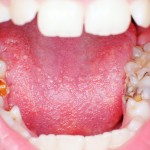
Vitamin D plays an important role in the formation and development of tooth and bone with a link between vitamin D levels and caries being reported around 100 years ago (Mellanby, 1928). A number of potential mechanisms for the impact on dental health have been hypothesised but the relationship between caries and vitamin D is ambiguous.
The aim of this review was to evaluate the association between a higher experience of dental caries and lower serum vitamin D levels in children.
Methods
Searches were conducted in the Cochrane Library, PubMed, Embase, and Web of Science databases with no language restrictions. Cohort, case-control, and cross-sectional studies investigating the association between vitamin D level and dental caries in children were considered. Two reviewers independently searched and selected studies and extracted data. Quality of the cohort and case-control studies was assessed using the Newcastle-Ottawa Scale (NOS) and the Joanna Briggs Institute (JBI) criteria used for the cross-sectional studies. Relative risk (RR) and 95% confidence intervals (CIs) were calculated, and meta-analyses conducted.
Results
- 13 studies (5 cohort, 5 cross-sectional, 3 case-control) involving a total of 19,205 patients were included.
- Sample sizes ranged from 38 to 5,545 patients.
- The quality of all 13 studies were rated as high.
- Meta-analyses showed a higher risk of dental caries for patients with vitamin D deficiency (see table below).
| Analysis | No. of studies | Relative risk (95%CI) |
| Unadjusted | 13 | 1.22 (1.18 – 1.25) |
| Adjusted for confounders | 9 | 1.16 (1.10 – 1.22) |
| Cohort studies only | 5 | 1.62 (1.51 – 1.74) |
| Cross-sectional only | 5 | 1.19 (1.14 – 1.24) |
| Case-control studies only | 3 | 1.05 (1.00 – 1.09) |
| Permanent dentition only | 2 | 1.28 (1.21 – 1.35) |
| Primary dentition only | 6 | 1.68 (1.57 – 1.79) |
| Mixed dentition | 4 | 1.08 (1.04 – 1.12) |
Conclusions
The authors concluded: –
… dental caries is negatively associated with 25(OH)D levels in youngsters. To improve children’s dental health, it is important to ensure sufficient intake of 25 (OH) D during childhood. Healthcare professionals should be mindful that prenatal nutrition and infantile childhood diet can affect the occurrence of dental caries in children.
Comments
The authors searched 4 major databases with no language restrictions identifying 13 observational studies. The findings suggest higher levels in caries in patients with vitamin D deficiencies. However, the studies are heterogeneous with included studies using different methods of measure caries there is also variation in the timing of the vitamin D measurements. While various analyses were undertaken to take into account dentition, study type and some confounders only toothbrushing an socio-economic status were mentioned in the paper. One of the Schroth papers included in this review considered by us in 2016 (Dental Elf – 3rd Feb 2016) included toothbrushing and dental visits. Future studies should consider an agreed number of common confounders for caries. Larger prospective cohort studies with more regular measurement of vitamin D levels would be required to assess the strength of the association between vitamin D and caries.
Links
Primary Paper
Li Z, Wei X, Shao Z, Liu H, Bai S. Correlation between vitamin D levels in serum and the risk of dental caries in children: a systematic review and meta-analysis. BMC Oral Health. 2023 Oct 19;23(1):768. doi: 10.1186/s12903-023-03422-z. PMID: 37858104; PMCID: PMC10585927.
Other references
Mellanby M, Pattison CL. The action of vitamin D in preventing the spread and promoting the arrest of caries in children. Br Med J. 1928 Dec 15;2(3545):1079-82. doi: 10.1136/bmj.2.3545.1079. PMID: 20774325; PMCID: PMC2456958.
Dental Elf – 16th Oct 2023
Dental Elf – 3rd Feb 2016
Dental Elf – 20th Nov 2012
Review revisits old evidence linking vitamin D and dental caries and suggests there may be a benefit
